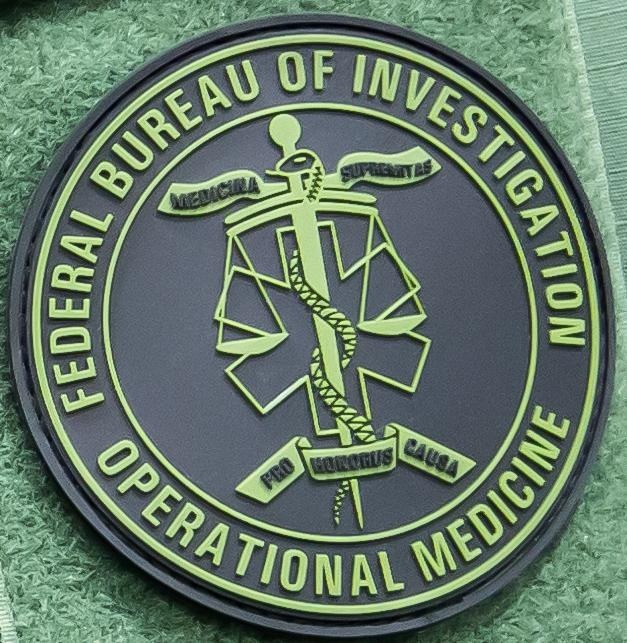Behind the Scenes with Operational Medics
A Look Inside Our Washington Field Office's OpMed Program
The wounded man needed to be airlifted to a hospital immediately, and in the shadow of deafening helicopter blades whose wash was strong enough to knock a person over, special agents worked quickly to secure the patient to a stretcher and prepare to care for him in the close quarters of the aircraft.
Although this was only an exercise, the highly trained members of the FBI’s Operational Medicine (OpMed) Program were focused on their mission—to provide care under the most stressful situations. Whether for a fellow agent engaged in a SWAT operation or a violent criminal injured during a high-risk arrest, the “medics,” as they are known, don’t distinguish between who needs treatment.
 |
The Washington Field Office has more than 20 members trained |
“We are on hand during tactical situations to take care of medical emergencies,” said Special Agent Doug Mohl, who coordinates the Washington Field Office (WFO) program. “This work is great,” he explained, “because usually agents are protecting the public by putting bad guys in jail. But operational medicine personnel get to take care of people. We may meet an individual on one of the worst days of his life—or one of our fellow agents on the worst day of his career—and we render care to them and try to make sure they stay healthy.”
There is at least one medic in each of the FBI’s 56 field offices. (Regardless of whether agents are trained as Emergency Medical Technicians—EMTs—or paramedics, they are all referred to as medics.) They deploy with SWAT, accompany agents on high-risk arrests, and often are part of Rapid Deployment Teams that travel the world to support Bureau investigations and operations.
Because agents and critical response professionals may find themselves in harm’s way—in war zones, for example, or responding to the potential use of chemical or biological agents—the possibility of injury or illness is real, and sometimes appropriate medical facilities are not close by. That’s why OpMed personnel are highly valued and why they train to keep their skills sharp, even though it’s a collateral duty.
“Everybody on the team is an FBI agent first,” Mohl explained. “They work their cases, but when they have a mission, they step away from their investigations, step into their role as medics, deal with the situation, and then come back to their regular duties.”
Mohl, a paramedic, added that agents who are drawn to the OpMed program put in the extra time and effort because they are dedicated, “and they like helping people.” The WFO team is the largest of any FBI office, with more than 20 members trained as EMTs and paramedics.
On this day at the Bureau’s Quantico, Virginia training facility, the WFO team will work through a number of patient scenarios that require thoughtful assessment and quick treatment.
“We want to make this feel like real-life situations,” Mohl said, so the medics rotate through stations and are required to assess and treat someone with chest pains, a car crash victim, and an agent injured during a tactical operation, among others.
In tactical situations, Mohl said, medics have a different set of challenges than typical EMTs and paramedics. Besides the stress of being in a potentially threatening environment, they must carry all the gear they need.
“Sometimes medics won’t have the support of an ambulance,” he explained, “so they have to carry what they need medically in addition to what’s required as an agent. Your kit might include a belt with firearms and ammunition, you may have a long gun, a ballistic vest, helmet, goggles, and hearing protection, so it can be hard to hear. There may be a lot of distractions from a physical standpoint—lugging all that stuff around that weighs an extra 30 pounds, kneeling over a patient or sitting in the backseat of a car trying to render care.”
The Washington Field Office team has a diverse background, to include past careers as flight paramedics, EMS supervisors, EMT instructors, and volunteer firefighters. Still, they all share one thing in common, Mohl said. “They are motivated to go above and beyond what is normally expected of them, to deal with pressure and stressful situations, and to be able to adapt.”


